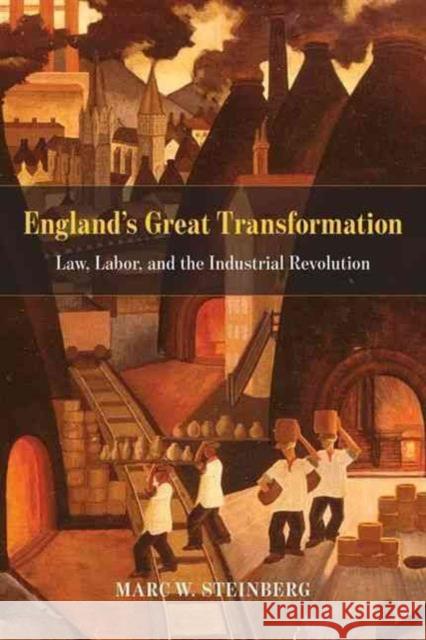England's Great Transformation: Law, Labor, and the Industrial Revolution » książka
England's Great Transformation: Law, Labor, and the Industrial Revolution
ISBN-13: 9780226329819 / Angielski / Twarda / 2016 / 256 str.
England's Great Transformation: Law, Labor, and the Industrial Revolution
ISBN-13: 9780226329819 / Angielski / Twarda / 2016 / 256 str.
(netto: 380,93 VAT: 5%)
Najniższa cena z 30 dni: 396,71
ok. 22 dni roboczych.
Darmowa dostawa!
With England's Great Transformation, Marc W. Steinberg throws a wrench into our understanding of the English Industrial Revolution, largely revising the thesis at heart of Karl Polanyi's landmark The Great Transformation. The conventional wisdom has been that in the nineteenth century, England quickly moved toward a modern labor market where workers were free to shift from employer to employer in response to market signals. Expanding on recent historical research, Steinberg finds to the contrary that labor contracts, centered on insidious master-servant laws, allowed employers and legal institutions to work in tandem to keep employees in line.
Building his argument on three case studies--the Hanley pottery industry, Hull fisheries, and Redditch needlemakers--Steinberg employs both local and national analyses to emphasize the ways in which these master-servant laws allowed employers to use the criminal prosecutions of workers to maintain control of their labor force. Steinberg provides a fresh perspective on the dynamics of labor control and class power, integrating the complex pathways of Marxism, historical institutionalism, and feminism, and giving readers a subtle yet revelatory new understanding of workplace control and power during England's Industrial Revolution.










